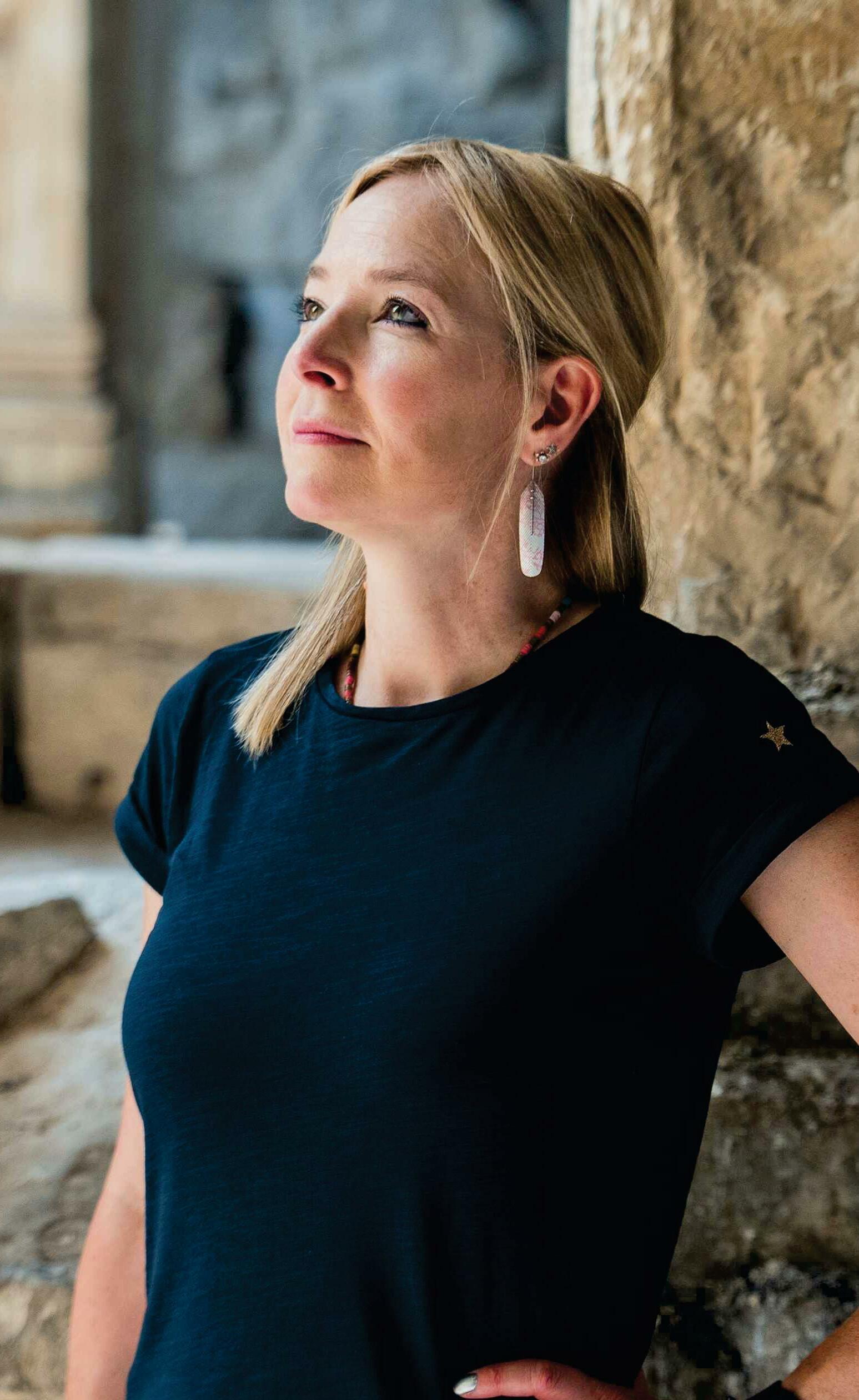कोशिश गोल्ड - मुक्त
"Christianity didn't invent itself as an empire from nothing: it adapted existing Roman structures"
BBC History UK
|September 2025
ALICE ROBERTS speaks to Danny Bird about the evolution of the new religion that swept across the Roman empire and beyond
-

Danny Bird What made you decide to write about the collapse of the western Roman empire and the rise of Christianity?
Alice Roberts I've long been fascinated by this historical period, especially in Britain, where written records are scarce. This book grew from my interest in burial archaeology, shaped by excavations I took part in 20 years ago on a Welsh cliff. Bones were eroding from the cliff face, and we uncovered cist graves – stone-lined, coffin-like structures – some dating from as early as the fifth century. One grave even had a stone lid carved with a simple cross. These early Christian burials sparked my curiosity.
More recently, I visited an excavation at Llantwit Major, where archaeologists are investigating what may be Britain's earliest monastery, possibly dating to the fifth century. This raised further questions: why was Christianity spreading so early? And who was behind it?
Rather than relying on broad generalisations, my book focuses on individuals: the people who carried Christianity across regions, and their motives. A story that began with burials in Wales led me across the Roman world from Istanbul (formerly Constantinople) to Alexandria, aiming to find out how Christianity spread so widely, and what that reveals about the fall of the western Roman empire.
Christianity presents itself as a faith for the powerless, but your book suggests that it was adopted by urban elites in its early centuries. How does this challenge the mythology surrounding its origins?
It stands in stark contrast, really. It's a tricky point, because those writing about Christianity were necessarily literate members of the elite. So, from the outset, we're seeing a movement that appears to have spread among relatively well-off individuals.
यह कहानी BBC History UK के September 2025 संस्करण से ली गई है।
हजारों चुनिंदा प्रीमियम कहानियों और 10,000 से अधिक पत्रिकाओं और समाचार पत्रों तक पहुंचने के लिए मैगज़्टर गोल्ड की सदस्यता लें।
क्या आप पहले से ही ग्राहक हैं? साइन इन करें
BBC History UK से और कहानियाँ

BBC History UK
Hymn to life
Scripted by Alan Bennett and directed by Nicholas Hytner - a collaboration that produced The Madness of King George and The History Boys – The Choral is set in 1916.
1 min
December 2025

BBC History UK
Helen Keller
It was when I was eight or nine years old, growing up in Canada, and I borrowed a book about her from my local library.
2 mins
December 2025

BBC History UK
Spain's miracle
The nation's transition from dictatorship to democracy in the late 1970s surely counts as one of modern Europe's most remarkable stories. On the 50th anniversary of General Franco's death, Paul Preston explores how pluralism arose from the ashes of tyranny
8 mins
December 2025

BBC History UK
Just how many Bayeux Tapestries were there?
As a new theory, put forward by Professor John Blair, questions whether the embroidery was unique, David Musgrove asks historians whether there could have been more than one 'Bayeux Tapestry'
7 mins
December 2025

BBC History UK
In service of a dictator
HARRIET ALDRICH admires a thoughtful exploration of why ordinary Ugandans helped keep a monstrous leader in power despite his regime's horrific violence
2 mins
December 2025

BBC History UK
The Book of Kells is a masterwork of medieval calligraphy and painting
THE BOOK OF KELLS, ONE OF THE GREATEST pieces of medieval art, is today displayed in the library of Trinity College Dublin.
3 mins
December 2025

BBC History UK
Passing interest
In his new book, Roger Luckhurst sets about the monumental task of chronicling the evolution of burial practices. In doing so, he does a wonderful job of exploring millennia of deathly debate, including the cultural meanings behind particular approaches.
1 mins
December 2025

BBC History UK
Is the advance of AI good or bad for history?
As artificial intelligence penetrates almost every aspect of our lives, six historians debate whether the opportunities it offers to the discipline outweigh the threats
8 mins
December 2025

BBC History UK
Beyond the mirage
All serious scholarship on ancient Sparta has to be conducted within the penumbra of the 'mirage Spartiate', a French term coined in 1933 to describe the problem posed by idealised accounts of Sparta.
1 mins
December 2025

BBC History UK
He came, he saw... he crucified pirates
Ancient accounts of Julius Caesar's early life depict an all-action hero who outwitted tyrants and terrorised bandits. But can they be trusted? David S Potter investigates
10 mins
December 2025
Listen
Translate
Change font size

